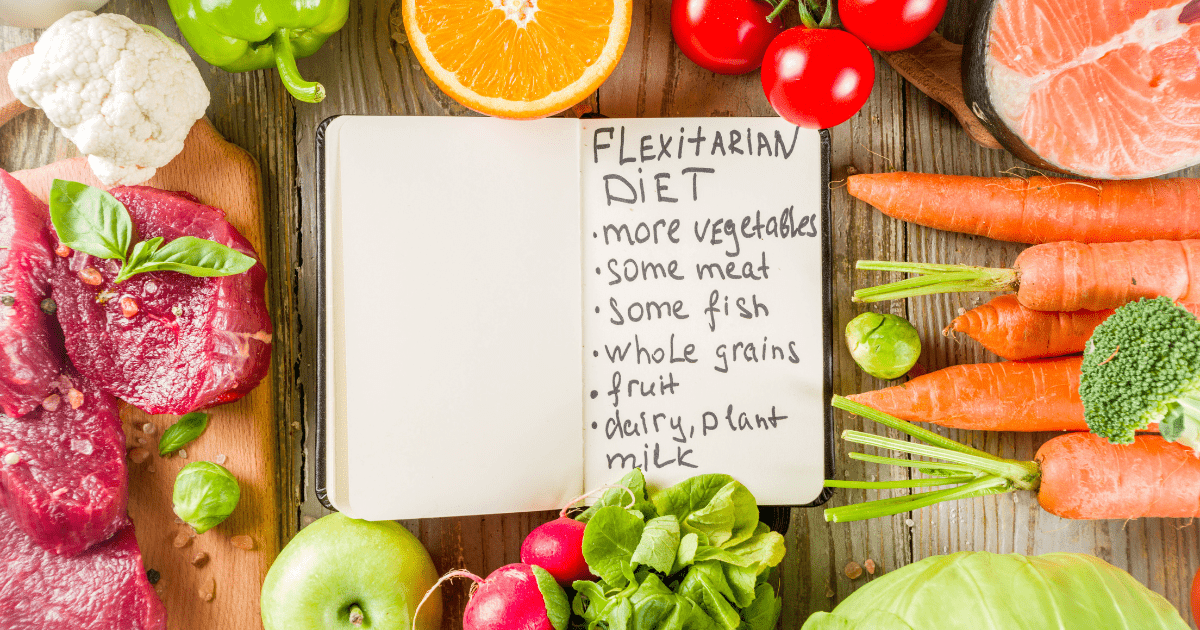The term “flexitarian” combines “flexible” and “vegetarian,” representing a dietary approach that prioritizes plant-based foods while allowing occasional consumption of meats, fish, eggs, and dairy products. Unlike strict vegetarian diets, the flexitarian diet offers flexibility for individuals who desire a balance between plant-based eating and occasional animal product consumption.
Benefits of the Flexitarian Diet for Weight Loss
The flexitarian diet is ideal for individuals aiming to shed excess weight and adopt a healthier lifestyle. Plant-based diets are renowned for their nutritional richness and health benefits, making them conducive to weight loss efforts. The primary objective of the flexitarian diet is to increase the intake of plant-based foods while gradually reducing meat and animal product consumption.
Levels of the Flexitarian Diet
The flexitarian diet offers three distinct levels – beginner, advanced, and expert – to accommodate varying dietary preferences and goals. Beginners start by eliminating meat two days per week, replacing it with protein-rich alternatives like legumes or tofu. As individuals progress, advanced users aim for meatless meals 3-4 days per week, while experts may consume meat only 1-2 days per week or less.
Utilizing the Flexitarian Diet for Weight Loss
Plant-based foods are inherently nutritious and low in calories, making them instrumental in promoting weight loss. By incorporating more plant-based foods into your diet and reducing processed foods and meats, you can achieve sustainable weight loss. Combining the flexitarian diet with regular exercise and portion control further enhances weight loss outcomes.
Key Components of the Flexitarian Diet
The flexitarian diet emphasizes whole, nutrient-dense foods, including:
- Protein-rich alternatives such as legumes, tofu, tempeh, seeds, nuts, eggs, and dairy products.
- Whole grains like brown rice, quinoa, and whole grain bread, which provide sustained energy and satiety.
- High-fiber foods to support digestion and promote feelings of fullness, reducing the likelihood of unhealthy snacking.
Practical Tips for Success
Transitioning to a flexitarian lifestyle involves gradual changes and experimentation with plant-based recipes. Start by incorporating meatless meals 3-4 days per week and progressively reducing meat consumption. Explore diverse plant-based ingredients and cooking techniques to create flavorful and satisfying meals.
The Flexitarian Diet and Flexibility
The flexitarian diet offers individuals the flexibility to adapt their eating habits to their preferences and lifestyle. Unlike strict vegetarian diets, which may require complete elimination of animal products, the flexitarian approach allows for occasional consumption of meats, fish, eggs, and dairy. This flexibility makes the diet more sustainable and appealing to a wider range of individuals.
Flexitarian Recipes and Meal Ideas
The flexitarian diet offers a plethora of delicious and nutritious recipes to suit every taste and occasion. From hearty plant-based meals to creative meatless alternatives, there’s no shortage of culinary inspiration to explore. Whether you’re craving a comforting bowl of lentil soup or a colorful veggie stir-fry, the flexitarian diet offers endless possibilities for delicious and satisfying meals.
The Role of Mindful Eating in the Flexitarian Diet
In addition to emphasizing plant-based nutrition, the flexitarian diet encourages mindful eating practices. Mindful eating involves paying attention to your food choices, savoring each bite, and listening to your body’s hunger and fullness cues. By practicing mindful eating, you can develop a healthier relationship with food and make more conscious choices that support your weight loss goals.
Conclusion
The flexitarian diet offers a flexible and sustainable approach to weight loss, emphasizing plant-based nutrition while allowing occasional consumption of animal products. By prioritizing whole, nutrient-rich foods and gradually reducing meat intake, individuals can achieve their weight loss goals while enjoying a varied and satisfying diet. With its focus on flexibility, variety, and mindfulness, the flexitarian diet offers a practical and effective way to improve your health and well-being.
